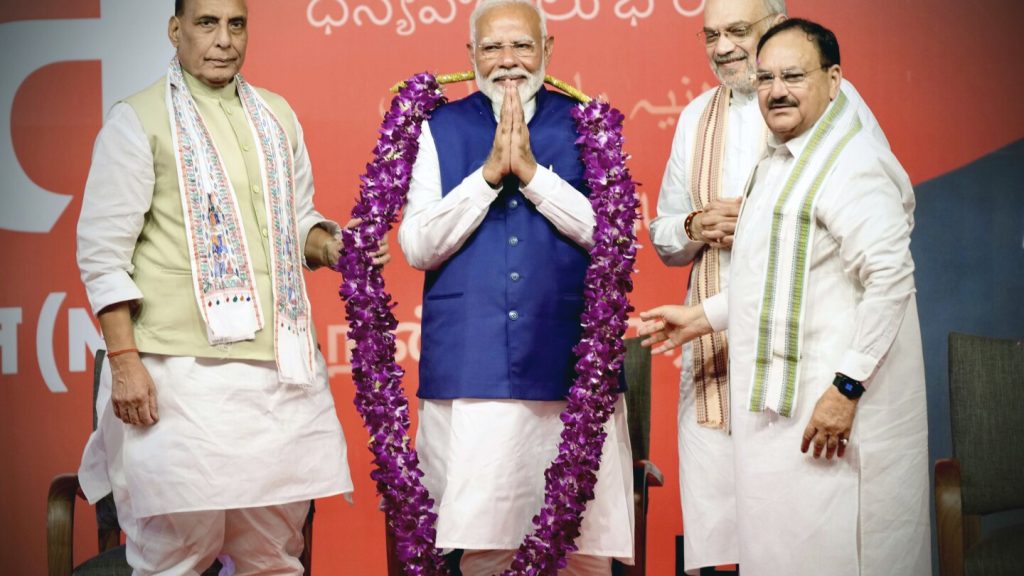India’s Prime Minister Narendra Modi has begun his third consecutive term in office, facing new challenges as his party, the Hindu nationalist Bharatiya Janata Party, failed to secure a majority to govern on its own. Despite this, his National Democratic Alliance coalition won enough seats for a slim parliamentary majority, allowing him to take the oath of office along with his Cabinet members at India’s presidential palace in New Delhi. This marks Modi as only the second Indian prime minister to win a third straight term, as he has presided over a fast-growing economy while advancing Hindu nationalism.
While Modi is celebrated by supporters for improving India’s global standing, growing the economy, and streamlining welfare programs, critics view him as a cult leader eroding democracy and targeting minorities, particularly Muslims. They accuse him of using strong-arm tactics against opponents and dissenting voices, though his government denies these allegations. Modi’s victory has been attributed to social welfare programs and Hindu nationalism, which have helped consolidate Hindu votes during his tenure.
Despite economic growth and improvements in welfare, Modi faces criticism for failing to create enough jobs and worsening inequality during his rule. His election campaign focused on transforming India into a developed country by 2047, highlighting welfare policies and digital infrastructure. However, as the campaign progressed, Modi increasingly used anti-Muslim rhetoric, accusing the opposition of pandering to the minority community. He also suggested that he was chosen by God, emphasizing his commitment to Hindu nationalist ideals.
Modi’s political origins trace back to joining the Rashtriya Swayamsevak Sangh, a right-wing group accused of inciting hatred against Muslims, before he rose to power as the chief minister of Gujarat in 2001. Despite suspicions of his involvement in anti-Muslim riots in the region, Modi denies these allegations. His leadership has been marked by controversial decisions, such as opening a temple on the site of a razed mosque and revoking the special status of Kashmir, the country’s only Muslim-majority state.
Critics argue that Modi’s Hindu-first politics have fueled intolerance and attacks against minorities, particularly Muslims, leading to a surge in popularity among his supporters who see him as a defender of Hindu interests. Political analysts note his strategic use of religious tensions for political gain, with a focus on Hindu nationalism that was pioneered during his time in Gujarat and has become a national brand under his leadership. Despite the challenges and controversies surrounding his tenure, Modi’s influence in Indian politics remains significant as he embarks on his third term as prime minister.















